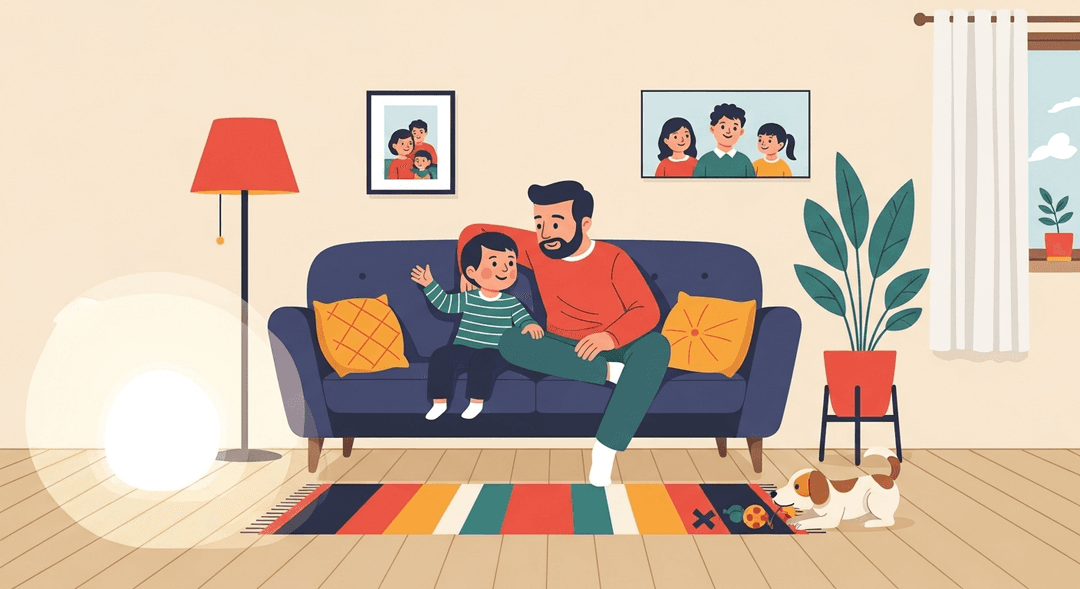Foster Open Communication
Ever feel like your kid only talks to you when it’s about snacks, screen time, or why the dog can’t eat Legos? Welcome to the club. If you’ve ever wished your child would spill their guts about life’s big stuff (instead of just the location of their missing sock), this is your sign to create a ‘no judgment, all weird questions welcome’ zone. Spoiler: It’s less about dramatic heart-to-hearts and more about not freaking out when you hear, 'So…what’s a mortgage?'
Kids who feel safe to talk develop better emotional regulation, higher self-esteem, and stronger problem-solving skills—plus, their brains literally wire up for trust and resilience. For parents, open communication means fewer surprise meltdowns and more confidence that your kid will come to you with the big (and weird) stuff, not just the 'my shoelace is haunted' emergencies.
How to do it
-
When your child asks weird or confusing questions, respond with curiosity instead of panic. This helps keep the conversation open and shows your child that no topic is off-limits.
-
Schedule regular "talk time" with your child. This could be during car rides, at bedtime, or even while sharing a snack. Consistent opportunities for conversation make it easier for your child to open up.
-
Share your own stories and mistakes—just make sure they’re age-appropriate. Letting your child know that everyone messes up sometimes helps normalize making mistakes and encourages honesty.
-
Practice your best "I’m not shocked" face in the mirror. Staying calm and composed, even when you hear surprising things, reassures your child that they can tell you anything.
-
Always thank your child for sharing things with you, even if it’s about the time they ate glue in kindergarten. Expressing gratitude for their honesty builds trust and keeps the lines of communication open.
Key Tips:
- Stay calm and curious, not judgmental.
- Make conversations a regular habit.
- Use your own experiences to connect.
- Show appreciation for honesty.
- Keep your reactions supportive and non-shocking.
